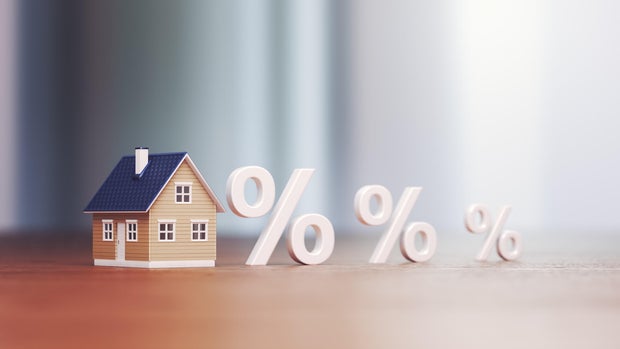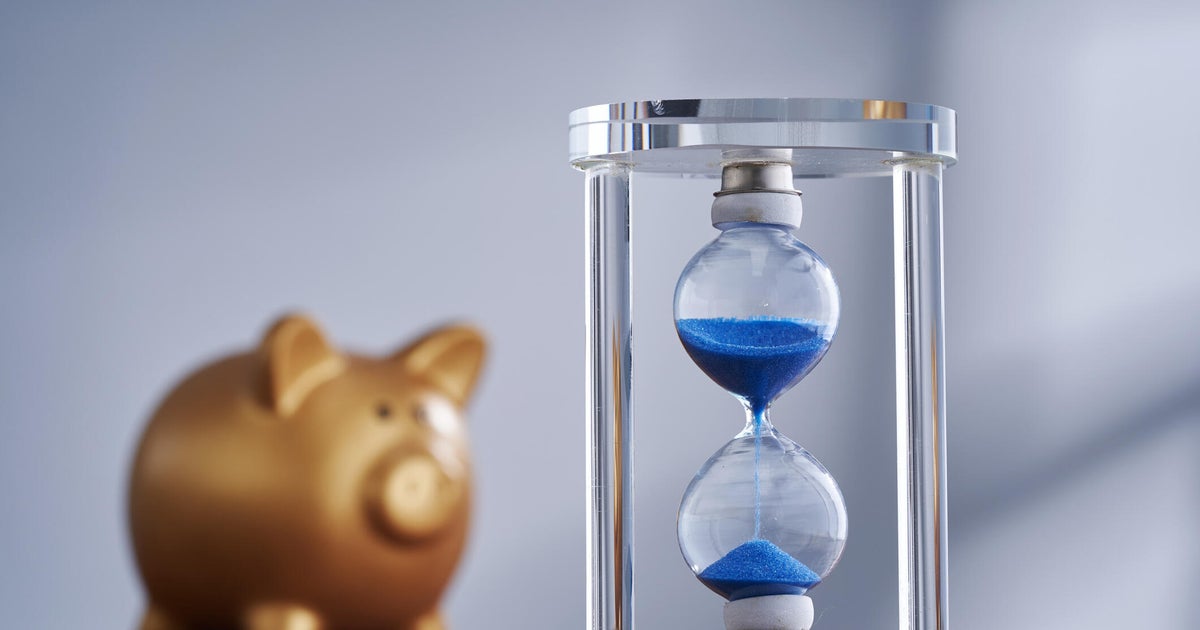 If you're going to tap into your home equity, finding the lowest rate is important, especially in today's economic landscape.
Getty Images
If you're going to tap into your home equity, finding the lowest rate is important, especially in today's economic landscape.
Getty Images
While inflation has cooled from recent peaks, it's been ticking back up over the last couple of months, and elevated interest rates are continuing to pressure household finances. These economic conditions have made home equity loans more appealing, as this type of borrowing tends to be one of the most affordable in today's high-rate environment. The average home equity loan rate currently sits at 8.36%, for example, a notable decline from the average of about 9% in early 2024.
And, with home values climbing to over $360,000 in the United States, and with the average homeowner sitting on over $300,000 in equity right now, many homeowners are turning to home equity loans to access the cash they need to borrow without selling their homes. These types of loans aren't just more affordable than options like credit cards or personal loans, either. They're also practical, as they let you tap your property's value for nearly any purpose, from debt consolidation to major renovations or unexpected expenses.
But with rates fluctuating and home lenders offering vastly different terms, how do you know what constitutes a "good" rate, or what you should expect to pay this August? And how can you get the most competitive offers? Here's what lending experts say.
Find out how affordable the right home equity borrowing option could be today.
What's a good home equity loan rate this August? Experts weigh in"A favorable home equity loan rate in August will likely range between 7% and 10%, depending on factors specific to each borrower," Debbie Calixto, sales manager at mortgage lender loanDepot, says.
Steven Glick, director of mortgage sales at real estate investment fintech company HomeAbroad, uses the national average as his benchmark.
"[This month], anything below 8.25% for a 10-year term or 8.20% for a 15-year term [is] good," he notes. "If you can lock in a rate under 8% for a 10-year loan or 7.95% for a 15-year loan, you're in a strong position," Glick says.
Ultimately, though, your financial strength determines where you'll land within this range, experts say — and there are specific factors that can influence the home equity loan rates you're offered.
Compare your home equity borrowing options and find the right lender now.
Factors that influence home equity loan rates"[Several] factors create a wide variability in equity rates and can move from 7% up to 12%," says Justin Messer, president and CEO of Prosperity Home Mortgage, LLC., a full-service mortgage banker.
Understanding what drives home equity loan interest rates can help you secure solid terms:
Credit score"A higher credit score (740 and up) signals you're reliable, so you'll likely get a lower rate — sometimes by 1% or more compared to someone with a 650 score," Glick explains.
Messer notes that credit scores above 780 will generally receive the best rates, while scores below 680 can lead to higher rates and limited availability.
Loan-to-value (LTV) ratioLoan-to-value (LTV) ratio measures how much you're borrowing compared to your home's value. According to Glick, most lenders set LTV maximums between 80% and 90%.
"But a lower LTV often gets you a better rate because it's less risky for the lender," Glick says.
Messer adds that the most attractive rates often go to borrowers with LTVs less than 70%.
Debt-to-income (DTI) ratioYour debt-to-income (DTI) ratio compares your monthly debt payments to your monthly income.
"Lenders prefer a DTI [ratio] below 43%, as it proves you can handle another loan," Glick explains. "A high DTI [ratio] might bump up your rate or lead to rejection if it's above 50%."
Loan term"Shorter terms (e.g., five to 10 years) typically come with lower rates because lenders face less long-term risk," notes Glick.
On the other hand, a 15-year home equity loan term might have a higher rate but offer lower monthly payments.
Property and occupancy type"Loans on primary residences tend to receive lower rates than those on second homes or investment properties," Calixto says.
Additionally, condominiums or multi-unit properties may carry higher rates than single-family homes due to perceived complexity.
Expert tips for securing the best home equity borrowing termsGetting the best possible home equity loan rate this month requires strategic preparation. Here's what mortgage analysts recommend:
Shop around. "Each [lender] has different rate structures and fees … compare [them and] don't settle for the first offer," Glick says.Bump up your credit score. "Even modest improvements to your score can lead to better rates and significant long-term savings," says Calixto. According to Glick, a 20-point bump from 680 to 700 can shave 0.5% off your rate.Borrow only what you need. "A lower loan amount often helps improve your rate by lowering your loan-to-value ratio," Calixto says.Review total costs, not just rates. "A lower rate doesn't always mean a lower total cost, since fees can vary [a lot] between lenders," says Calixto.Ask about discounts. "Some lenders offer rate cuts for existing customers or those who set up autopay," Glick says. "These can knock 0.25% or more off your rate."The bottom lineOverall, August's home equity loan rates are decent if you need access to cash. "Rates [should] stay steady," Calixto says. "Unless there's a major shift in the economy, big changes aren't likely right now."
Given this stability, it generally may not make sense to wait for dramatically better rates. If you're ready to tap your home equity and have a clear purpose for the funds, focus on finding the right loan for your situation. However, if your project isn't urgent, the current and foreseeable rate environment gives you flexibility. You won't miss out by taking a few months to improve your credit score or build more equity first.
Sharon Wu








